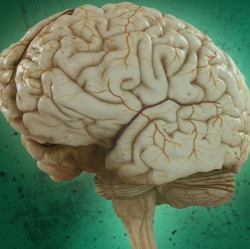
Researchers studying depression developed a test to measure analytical thinking that is a hallmark of the condition, leading to the idea that depression may actually be an adaptation meant to help people cope with complex problems.
The researchers at McMaster University and the Centre for Addiction and Mental Health were able to show a meaningful connection between answers to their 20-question test and analytical rumination, a type of distraction-resistant thinking that is characteristic of clinical and sub-clinical depression alike.
"Depression has long been seen as nothing but a problem," says Paul Andrews, an assistant professor of Psychology, Neuroscience & Behaviour at McMaster. "We are asking whether it may actually be a natural adaptation that the brain uses to tackle certain problems. We are seeing more evidence that depression can be a necessary and beneficial adaptation to dealing with major, complex issues that defy easy understanding."
The researches emphasize that clinical depression remains a serious mental health concern, and that understanding the underlying mechanisms at play can lead to more effective treatment. There is currently no consensus on the underlying pathology of depressive disorders, and the symptoms used for diagnosis occur on a spectrum that ranges from mild to severe.
